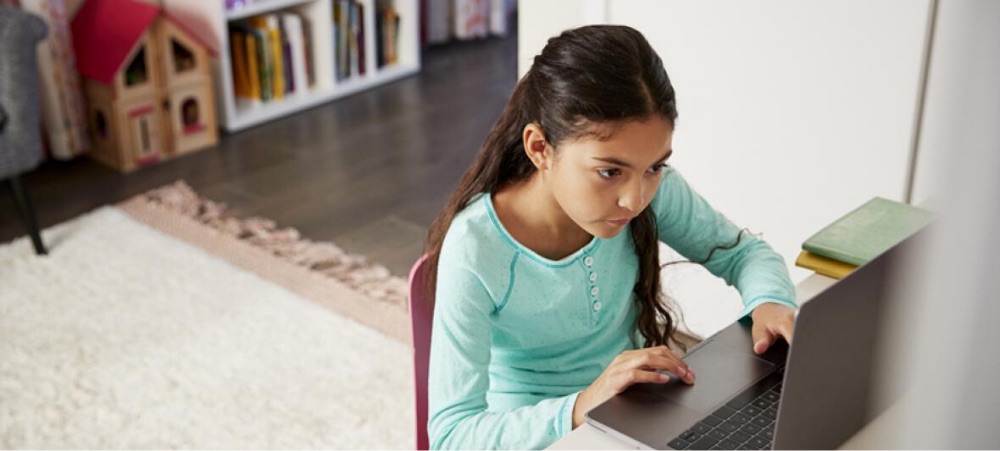
Teaching remotely: less is more
The temptation to do it all as if it is possible to maintain the pace and volume of contact education remotely must be resisted, an education expert says.


The temptation to do it all as if it is possible to maintain the pace and volume of contact education remotely must be resisted, an education expert says.

Under normal circumstances, Matric mid-year exams provide a valuable benchmark from which to launch the final push towards the finals. Because of the Covid-19 lockdown, there will be no official mid-year exams this year, but learners should still aim to re-create their own exam experience at home as this provides valuable practise and insights, and an opportunity to improve their performance later this year, an education expert says.

South African families are going through tremendously challenging times as most continue to stay at home during the country’s extended lockdown. While it is not yet clear when schools will start to re-open, thousands upon thousands of learners are working hard to stay on top of their educational journeys, while those parents who can do so are still working from home. External pressures combined with fear and anxiety about the future are taking their toll on parents who are, at the same time, tasked with ensuring their children don’t fall behind. These, and other factors, are exacting an undeniable emotional toll in homes during this time, an educational expert says.

Many teenagers are stereotyped as lazy and unmotivated children who want nothing more than to sleep in, socialise with friends and entertain themselves with their smartphones, laptops, and gaming consoles. But this stereotype isn’t really fair at all. It’s an understandable stereotype because this behaviour is what parents see, but it’s ultimately misguided. Teenagers can be, and are, motivated when they have reason to be, and when this motivation is properly instilled. Here we discuss five tips on how to motivate your teenager.

Mindscape is an affordable, quality and independent education system with a vision of making independent learning more accessible to parents wishing to home school their children. Independent schooling is on the rise in South Africa with parents taking the education of their children into their own capable hands. Mindscape is devoted to ensuring the best possible learning environment for your children as they explore new ways of learning and become forward thinkers with independence. At Mindscape we equip parents with a School-in-a-box-solution, complete with Curriculum books, assessments, teachers resources as well as online support for selective subjects. Some parents have enlisted Tutor Centres to assist them in giving the student the best possible advantage, we have a list of available centres for you to peruse. Mindscape’s curriculum is in line with the National curriculum and assessment policy statement (CAPS) and Grade 10 – 12 is quality assured by SACAI and Umalusi. What ages does your online schooling cover? GR4 to GR11 live lessons but we do cater from GR1 to GR12 for curriculum. Are you taking new learners at this time Yes, for Term 3 with exclusion of GR12. How are your online classes conducted? Edu Core Solutions facilitate our live lessons using own developed secure video platform. Are lessons conducted in groups or one on one? Scheduled group lessons are conducted. Is your school able to mark and report on students work submitted? Parents responsible for marking. With recognised report issued by Mindscape Education allowing progression of a learner. Contact Details Email: [email protected] Contact: 011 704 0687 Click here to visit their website Click here to visit their facebook page Click here to follow on instagram

The school placement chaos at the beginning of this year highlighted a very scary reality – we simply do not have enough good schools in Gauteng. A number of schools faced a very high enrolment demand as parents clamoured to ensure their children have a place in a school of excellence, while many schools, particularly in townships, were virtually empty. The result is that oversubscribed schools are forced to make use of mobile classrooms which are barely conducive to quality teaching and learning. These schools’ resources become constrained, with the average number of learners reaching 60 per class. This puts additional pressure on our teachers, and makes it a near impossibility that our learners will be provided with the strong foothold they so desperately need if they are to succeed in high school and beyond. It has been predicted that by 2020, Gauteng will still be short of 1373 classrooms at existing schools. This means that even at the accepted ration of 40 pupils per class‚ almost 55 000 pupils will be in over-crowded classrooms in three years.

Having to stay at home is hard for everyone, especially children who would otherwise be at school. When they’re not doing their lessons or homework, they might get frustrated or restless. This is tough to contend with, especially when the alternative is often hours spent on smartphones, tablets or game consoles. But we’ve rounded up a few fun and educational activities you can do with your children at home, regardless of how old they are, or at what stage they are in their learning journey.

The spread of the Covid-19 pandemic and the resultant closure of schools, has led to a new educational crisis. While school closures are important to contain the coronavirus in South Africa, a comprehensive catch-up plan for learners has yet to be devised by the Minister of Basic Education, Angie Motshekga. The Minister on the other hand, is leaving it up to each province, district, circuit and school to develop their own comprehensive catch-up plan. Currently only ten schooling days will be lost, which will be caught up by shortening the mid-year break, but the length, and extent, of the disruption to schooling is hard to predict at this stage with some experts forecasting that schools will only reopen at the end of April, or even May. The reality is, that very few schools in our country are able to administer e-learning, and critically, to ensure that learning material is adapted to alternative platforms such as tablets.

Since schools resumed for terms 2, we have providing online education throughout lockdown from Grades 000 right through to Grade 12. Our teachers are well equipped to continue with the syllabus and have use the opportunity to be creative in providing a platform that is informative, interactive and fun through the learning process.

Our engaging and inspired teachers take a zoom class each morning at a set time where they cover brain gym/movement, theme related topics, songs, sensory activities, science experiments, baking, stories and fun activities, which develop the preschool skills. Further activities and videos are loaded onto the google classroom for each class which the parents and children can access.

Our school is excited to be back: doing what we are passionate about. We have learners on site as well as learners who will not yet return to the classroom.

Have you ever experienced your child challenging something you have told them? It may seem frustrating, however I urge you to encourage your child’s natural instincts to inquire about the world around them. Critical thinking is beneficial for a number of reasons, it forms a vital role in their development and it helps them make sense of the world around them. It allows them to ask valuable questions and make valued judgements, and try to figure things out if they don’t make sense.

EduExcellence is bringing 13 years or physical remedial school experience to an online platform. We will retain aspects of our unique TheraEd (Therapeutic Education) approach to assist learners with so-called learning difficulties.

Many learners who normally attend traditional schools have temporarily become homeschoolers due to the national lockdown. While some are finding it easy to adjust others are struggling. We wanted to help, so we asked the experts: Impaq’s learners and parents. They successfully study from home all year round, so we asked them to share their creative tips and tricks on how to study from home during the lockdown.

Keeping up with your studies during the national lockdown? Whether you’re a seasoned homeschooler or usually attend a traditional school, keeping up with your studies during lockdown can be challenging. You’re confined to your home with family members around. To succeed in studying at home, you need to be prepared and become actively involved in your studies.

The national lockdown due to COVID-19 has not only seen many parents temporarily become teachers but it has also changed the way many teachers teach. While some struggled to make the transition to online teaching, others did not have quite such a hard time. We asked a local teacher to share his advice on how to teach during the national lockdown.

The gift of time…something we all wish for and never seem to have enough of. Now that we have it, despite the circumstances we are experiencing, why does it seem that we can’t wait for it to end?

For generations, we have grown up in classrooms where we learnt the same information at the same pace, regardless of our interests or needs – the ‘one size fits all’ approach. But the dawn of the 4th Industrial Revolution, and more recently the Coronavirus pandemic, has shone a light on the need to take a different approach to learning and teaching. For example, E-learning, which refers to the use of information and communication technologies to enable the access to online learning/teaching resources, has the benefit of flexibility; convenience; cost effectiveness and immediacy. In addition, a dynamic e-learning platform not only meets the needs of different students, but it also enriches learning in classroom settings. The Western Cape government, for example, has committed to spending R1.2-billion to implement e-learning in 1 250 local schools, which is a significant step toward bridging the education gap in South Africa.

Being stuck at home isn’t easy for everyone, especially those who miss the great outdoors, those who feel lonely living alone and parents who have suddenly been thrust into balancing homeschooling with working from home.

The national lockdown due to COVID-19 has seen many learners who normally attend a traditional school temporarily become homeschoolers. Parents in turn now have to juggle working from home and educating their children. And, while it might seem like a daunting task at first, the flexible nature of home education means that you can work and homeschool your kids. With some planning, flexibility, teamwork, and creative scheduling, it can be done.

Parents play a critical role in providing learning opportunities at home and in linking what children learn at school with what happens elsewhere. The term ‘academic socialisation’ refers to certain kinds of parental behaviours which have a positive impact on learning and academic outcomes. When parents reinforce learning at home by incorporating learned skills into everyday routines and activities, they become a critical factor in their child’s overall learning and education. Research has found that learning becomes more meaningful when the lessons are applied to real-life situations; it has been suggested that the influence of parents on learner achievement is 60-80%, while school accounts for 20-40% per cent.

The incentive for learning any additional language is distinctive to every household. However, in the South African context, given the vast social, cultural, historical and practical benefits, isiZulu is a great language to choose and learning it has many advantages and benefits.

Navigating through uncharted waters during this stressful time is very overwhelming for many of us and leads to anxiety and sleeplessness. Keep in mind that this is new territory for teachers, parents and our children. Find peace in knowing that we are all in the same boat. Steer your ship into calmness when there is a storm and choose the rules of your ship together as a family.

One of the most memorable days of your child’s schooling career is most definitely the first day of Grade 1. This day comes with a combination of different emotions from excitement to uncertainty and the question most parents wonder about:

Parents who find themselves at home with children who are not in school are having to find interesting ways to keeping their children interested and entertained while continuing to work from home.

Opera, one of the world’s leading browser developers, together with international non-profit organisation – Worldreader, are keeping young South African minds stimulated during the country’s lockdown, as a result of the coronavirus outbreak, by giving them access to an expanded range of eBooks via the Opera Mini browser. Starting this week, Worldreader will offer a new selection of eBooks to Opera Mini users as well as a brand-new web app designed to offer reading material tailored specifically for young adult readers.

Home Education provider, Brainline, says it is very optimistic that a pragmatic solution will be found to the implementation of the Basic Education Laws Amendment (BELA) Bill, which is set to include some changes to the home education landscape in South Africa.

Being unable to be a part of the outside world has created a new trend #learnsomethingnew among adults and children, with most of these new skills being learned through technology. Technology has recently become many things in a household: an educator, a baby-sitter, a news source and quite simply, a view to the outside world.

COVID-19 has profoundly disrupted every aspect of daily life across the globe. We are united in a struggle to make sense of the drastic changes, adapt as best we can and cope with a future that has never felt so completely uncertain. Of course, no one has it easy, but the young people in their final year of school will be feeling the challenges of the global pandemic in a unique way. On the cusp of putting their school days behind them and entering into a new world where they carve out their futures as adults, they now find themselves in a potentially long-lasting limbo, hanging between two vastly different worlds.

It is no secret that practice is a crucial element in the learning journey and is effective in many different educational contexts. Proverbs such as “practice is the best master” and “practice makes perfect” all contain a grain of truth, and in this article, we discuss why this is the case.
| Cookie | Duration | Description |
|---|---|---|
| cookielawinfo-checkbox-advertisement | 1 year | The cookie is set by GDPR cookie consent to record the user consent for the cookies in the category "Advertisement". |
| cookielawinfo-checkbox-analytics | 11 months | This cookie is set by GDPR Cookie Consent plugin. The cookie is used to store the user consent for the cookies in the category "Analytics". |
| cookielawinfo-checkbox-functional | 11 months | The cookie is set by GDPR cookie consent to record the user consent for the cookies in the category "Functional". |
| cookielawinfo-checkbox-necessary | 11 months | This cookie is set by GDPR Cookie Consent plugin. The cookies is used to store the user consent for the cookies in the category "Necessary". |
| cookielawinfo-checkbox-others | 11 months | This cookie is set by GDPR Cookie Consent plugin. The cookie is used to store the user consent for the cookies in the category "Other. |
| cookielawinfo-checkbox-performance | 11 months | This cookie is set by GDPR Cookie Consent plugin. The cookie is used to store the user consent for the cookies in the category "Performance". |
| viewed_cookie_policy | 11 months | The cookie is set by the GDPR Cookie Consent plugin and is used to store whether or not user has consented to the use of cookies. It does not store any personal data. |
| Cookie | Duration | Description |
|---|---|---|
| _ga | 2 years | This cookie is installed by Google Analytics. The cookie is used to calculate visitor, session, campaign data and keep track of site usage for the site's analytics report. The cookies store information anonymously and assign a randomly generated number to identify unique visitors. |
| _gid | 1 day | This cookie is installed by Google Analytics. The cookie is used to store information of how visitors use a website and helps in creating an analytics report of how the website is doing. The data collected including the number visitors, the source where they have come from, and the pages visted in an anonymous form. |
| Cookie | Duration | Description |
|---|---|---|
| _gat_gtag_UA_18530557_4 | 1 minute | No description |
| pron_ip | session | No description |
| pvc_visits[0] | 1 day | This cookie is created by post-views-counter. This cookie is used to count the number of visits to a post. It also helps in preventing repeat views of a post by a visitor. |
| tk_ai | session | Gathers information for WordPress by themselves, first party analytics tool about how WP services are used. A collection of internal metrics for user activity, used to improve user experience. |